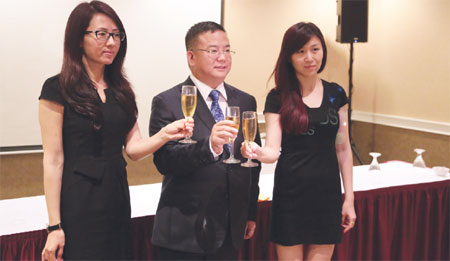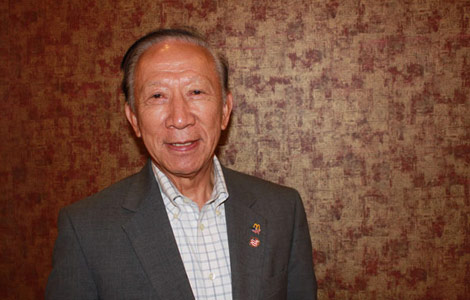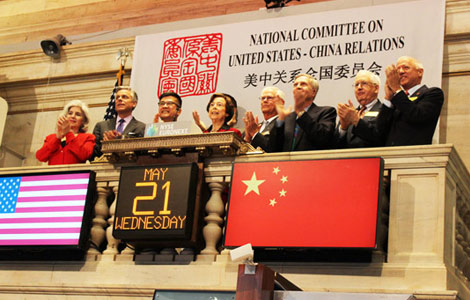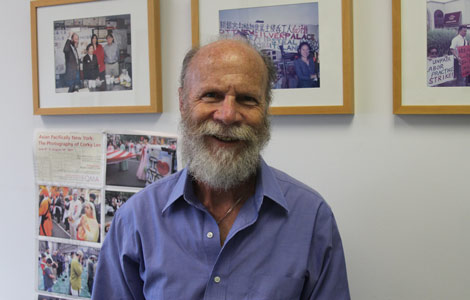A tour of Confucius Institutes in the Americas
Updated: 2014-05-30 12:29
By Cindy Liu in Los Angeles, May Zhou in Nashville, Tennessee, Zhang Fan in Santiago, Chile, and Rio de Janeiro, Brazil, Cai Chunying in Washington, and Liu Chang in Chicago (China Daily USA)
|
|||||||||
Nashville, Tennessee
For Middle Tennessee State University (MTSU), Confucius Institute's impact went beyond language and culture. The school turned its 2014 commencement ceremony on May 10 into a celebration of its connection with the CI initiative.
Xu Lin, director-general of Hanban, received an honorary doctorate, delivered the commencement address, and conferred degrees, along with MTSU President Sydney McPhee, to more than 2,000 graduates.
In her speech, Xu said that more than 20 MTSU students have received full scholarships from Hanban to study at Chinese universities; more than 40 high school students in the region participated in Hanban's summer camps in China; 20 elementary school students aD liated with local Confucius Classrooms visited China.
McPhee, who has visited more than 20 provinces in China in the past 17 years and calls himself a "Chinophile", said the university is planning to expand CI in the next five years.
"We just acquired a $10 million building and I already carved out a space for CI worth millions of dollars to develop a Chinese music program," he said.
"I am very happy that people in the area of Tennessee that produced Elvis are interested in embracing Chinese music," responded Xu.
The Confucius Institute there also helped MTSU's research collaboration with Chinese counterparts. It connected the university to Guangxi Botanical Garden in Nanning, China, to study the medicinal effect of Chinese herbs. "We have received over 200 samples [from China] and our scientists have already discovered more than 40 cases that the extracts are positively related to fighting cancer," said McPhee.
Santiago, Chile
Compared with the US, which has more than 100 Confucius Institutes and 350 Confucius Classrooms, the most of all countries, CI's development in Latin America is relatively modest with 26 institutes and 10 classrooms in 11 Latin American countries.
The region, however, welcomed its Confucius Institutes Latin American Regional Center in Santiago, Chile, on May 12. The Confucius Institutes US center was established in Washington half a year ago. Both aim to enhance the communication and cooperation between all Confucius Institutes they oversee.
Attending the launching ceremony, Xu, the outgoing director general of Hanban, said the reason for the center is "the large sum of people from Latin America who want to study Chinese".
Xu was joined by Eduardo Frei, former president of Chile, at the event. Frei is the honorary chairman of an 11-member committee of representatives from China, Brazil, Chile and Peru to oversee the center.
Chile's government has included Chineselanguage education into the curriculum of all middle schools since 2009, as a way to enhance the international competitiveness of the younger generation.
"I hope the other regional countries can also include such lessons in their curriculum because Latin America and China will share more and more interests both economically and politically. And the key for mutual understanding is language," Xu said.
Patricia Cuadra Guerra, a music teacher and a student at the Confucius Institute in Chile, the first country in the region to establish a CI, said she is very interested in Chinese culture and has studied it for one month.
Guerra and her # ve friends sang the Chinese national anthem at the launching ceremony.
Most Viewed
Editor's Picks

|

|

|

|

|

|
Today's Top News
H1-B visa spouses may soon get to work in US
Obama's speech disappoints
China Inst. marks 88th with gala
Singers try out for China's American Idol
Xi urges more jobs in Xinjiang
China to lower market access to army equipment
Residents collect anti-terror info
Russian troops leave Ukraine border
US Weekly

|

|














